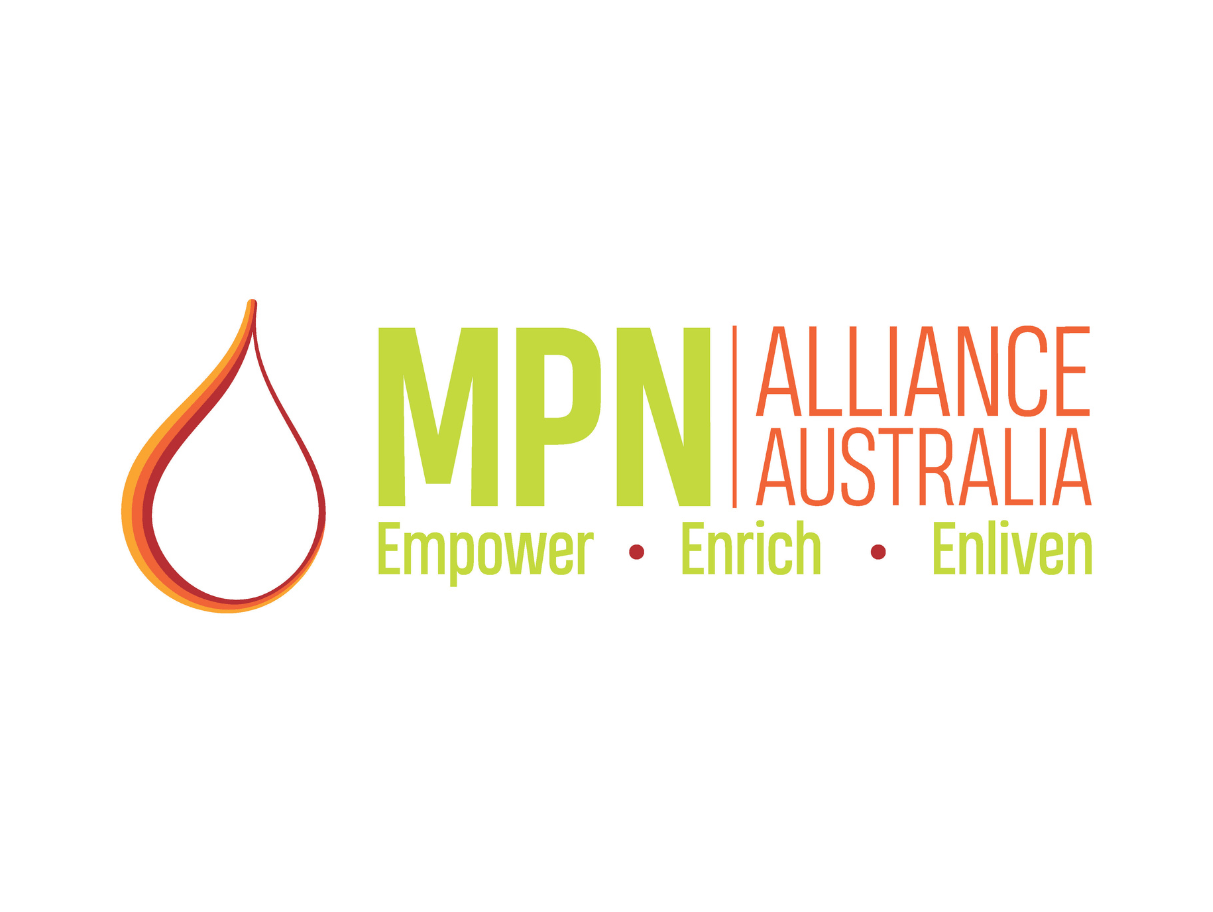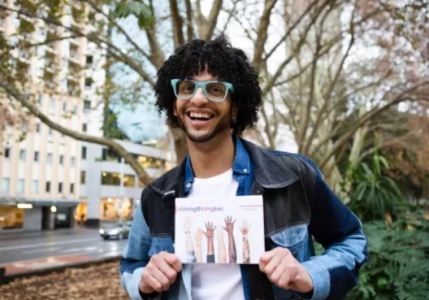MPN Alliance Australia
MPNAA supports, advocates, and promotes awareness on behalf of MNAA patients across Australia
Myeloproliferative Neoplasms (MPNs) are a group of blood cancers caused by one of a number of genetic mutations in which the bone marrow produces an excess of blood cells. The classic MPNs include essential thrombocythemia (ET), polycythemia vera (PV), and myelofibrosis (MF). The main immediate risk for MPN patients is blood clots (thrombosis) which includes heart attacks and strokes.
All MPN patients face the risk of progressing to myelofibrosis, a much more serious form of MPN. Myelofibrosis means the bone marrow is fibrous and unable to produce adequate blood cells. There are four main groups of MPN patients who may need to have a stem cell transplant to save their life.
- Younger myelofibrosis patients.
- Any MPN patients with additional high risk genetic mutations.
- Any patients diagnosed early in life with any MPN – because they also have a strong likelihood of progressing to myelofibrosis.
- Any MPN patients who progress to acute myeloid leukaemia, which is immediately life threatening.

Sharon was diagnosed with MPN at 18 years old.
Having lived with this rare form of blood cancer for over 30 years, she has been through a range of treatments. But ultimately, a stem cell transplant is her best chance for a cure. As someone of Southeast Asian heritage, Sharon has found it difficult to find her matching donor, given the lack of diversity on the international register.
Sharon, a passionate volunteer with MPNAA, shares what brought her to the organisation:
“I have a great passion for helping women with MPN, especially those diagnosed in childhood. I bring to the MPNAA Team my insights of going through teenage years and the social difficulties my MPN gave me, young married life difficulties with pregnancy and child birth, working life/career having to always work part-time and now in peri-menopause.”
If you’re 18-35, sign up to the stem cell donor registry. You could be the lifesaving match for Sharon or someone like her.
You can listen to Sharon’s interview with ABC radio here or read more about her story here.

Every 28 mins, someone in Australia is diagnosed with blood cancer. For many, a stem cell transplant from a stranger is their only hope. We need young Australians like you to help.
Together, we are calling on young Australians to put their hand up to save a life.

THE NEED FOR MORE STEM CELL DONORS
What do I need to know before I sign up?
Stem cell donation is a safe and simple process that can potentially cure life-threatening diseases. Before you register, it’s important for you to have a good understanding of what it means to be a donor and ensuring you’re committed, should you be someone’s life-saving match.
Eligibility check:
- You’re aged 18-35.
- Generally healthy (we’ll cover this in more detail in the next steps).
Signing up means:
- You’re committing to donate to anyone, globally needing a match.
- You’re committed to being available if called upon.
- We’ll stay in contact, keeping you informed and ready for the call.
Donation likelihood:
- Matches are rare; they are based on genetic compatibility.
- BUT while not everyone will donate, your registration increases chances for those in need.
If you’re a match:
- We’ll call you to let you know!
- Donation involves a simple procedure with minimal discomfort.
- We support you throughout, ensuring top medical care and thorough information.
How are you registering today?
Select one of the options below:

Swab at home
Important Information
We’re incredibly grateful for everyone who wants to make a difference by joining our registry. When it comes to donating stem cells, younger donors are preferred because they lead to better outcomes for patients. This focus on young donors helps us ensure that the patients’ transplants have the best chance of success.
While we do keep donors on the registry until their 60th birthday in case they become the perfect match for someone in need, we have to be mindful of our limited resources. Our priority is to engage those who can provide the greatest potential for successful transplants, which is why we encourage those aged between 18 and 35 years old to register.
If you’re outside this age range, please know that your passion and willingness to help are valued, and we appreciate your support in spreading the word about the importance of donating stem cells. See our How to help section for ways you can help our mission.
We understand that you may want to help a loved one who is unwell, and it’s natural to want to make a difference in their situation. However, when you register as a donor, you’re committing to help anyone in need of a stem cell transplant.
Unless you share the same parents, the chances of being a match for your loved one are very slim. Instead, by joining the registry, you have the opportunity to assist someone else who may be facing a similar situation to what your loved one is experiencing.
Your decision to register means you could potentially save the life of someone you’ve never met—someone who, like your loved one, is in need of support. While it might not be for your friend or relative, your willingness to help can make a significant difference in the lives of others in need.
If you match a patient, you will be contacted to confirm that you are healthy and still willing and available to donate. A blood sample will be taken to confirm the match.
Before donating, an independent specialist will assess you medically, explain the process thoroughly and answer any questions that you may have. Your health and well-being before and after donation are equally important.
Find out more about the donation process.